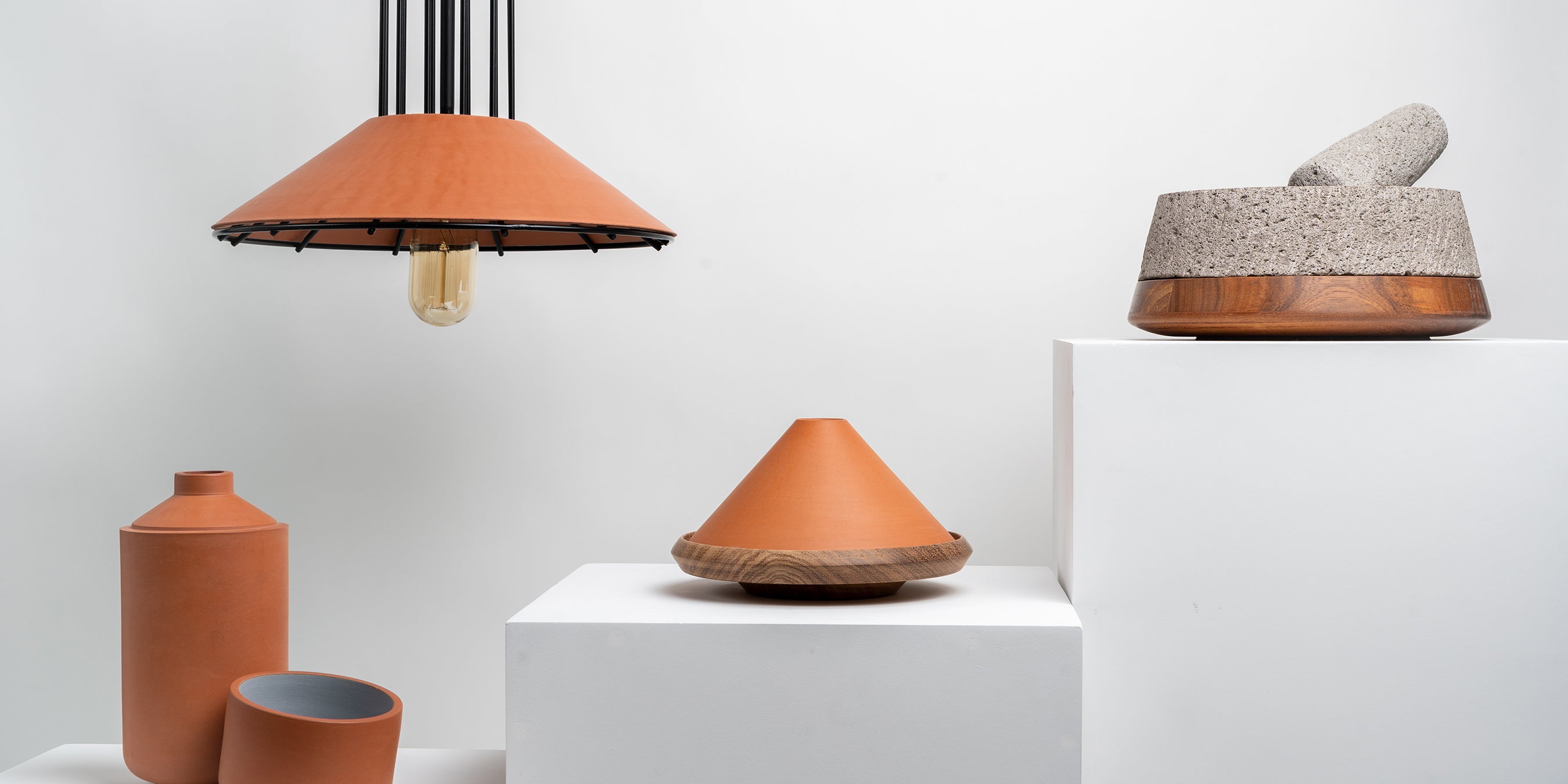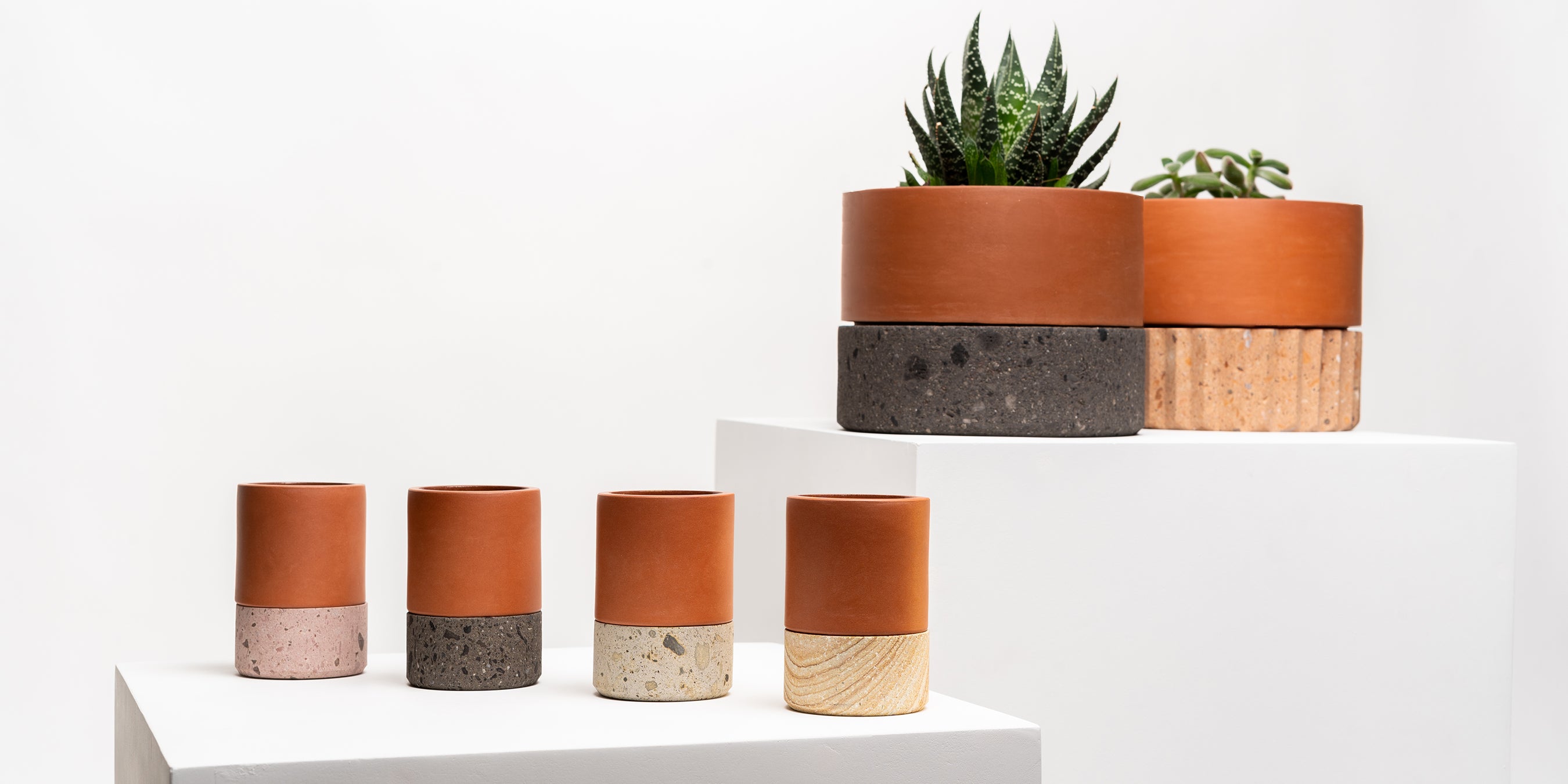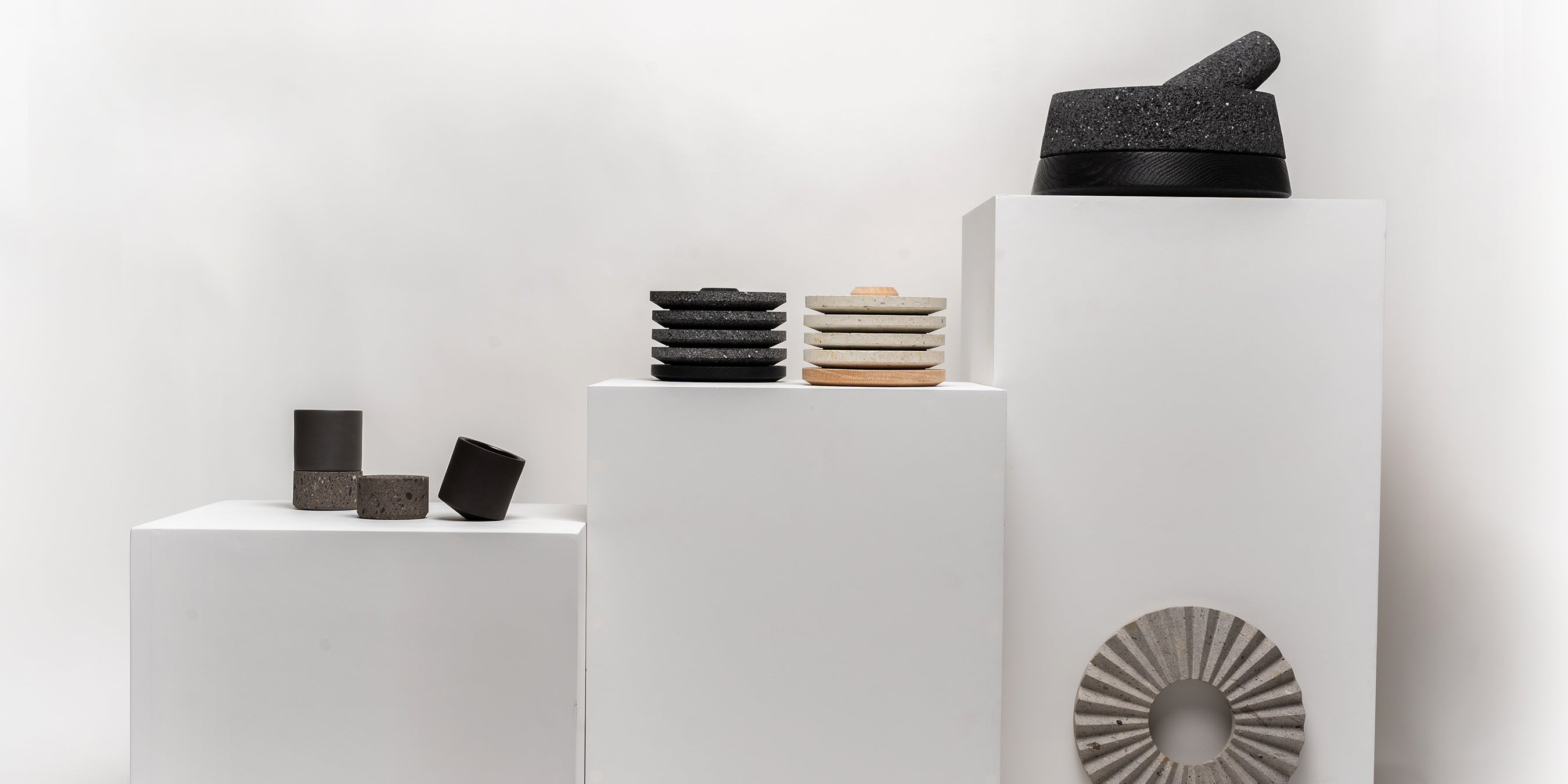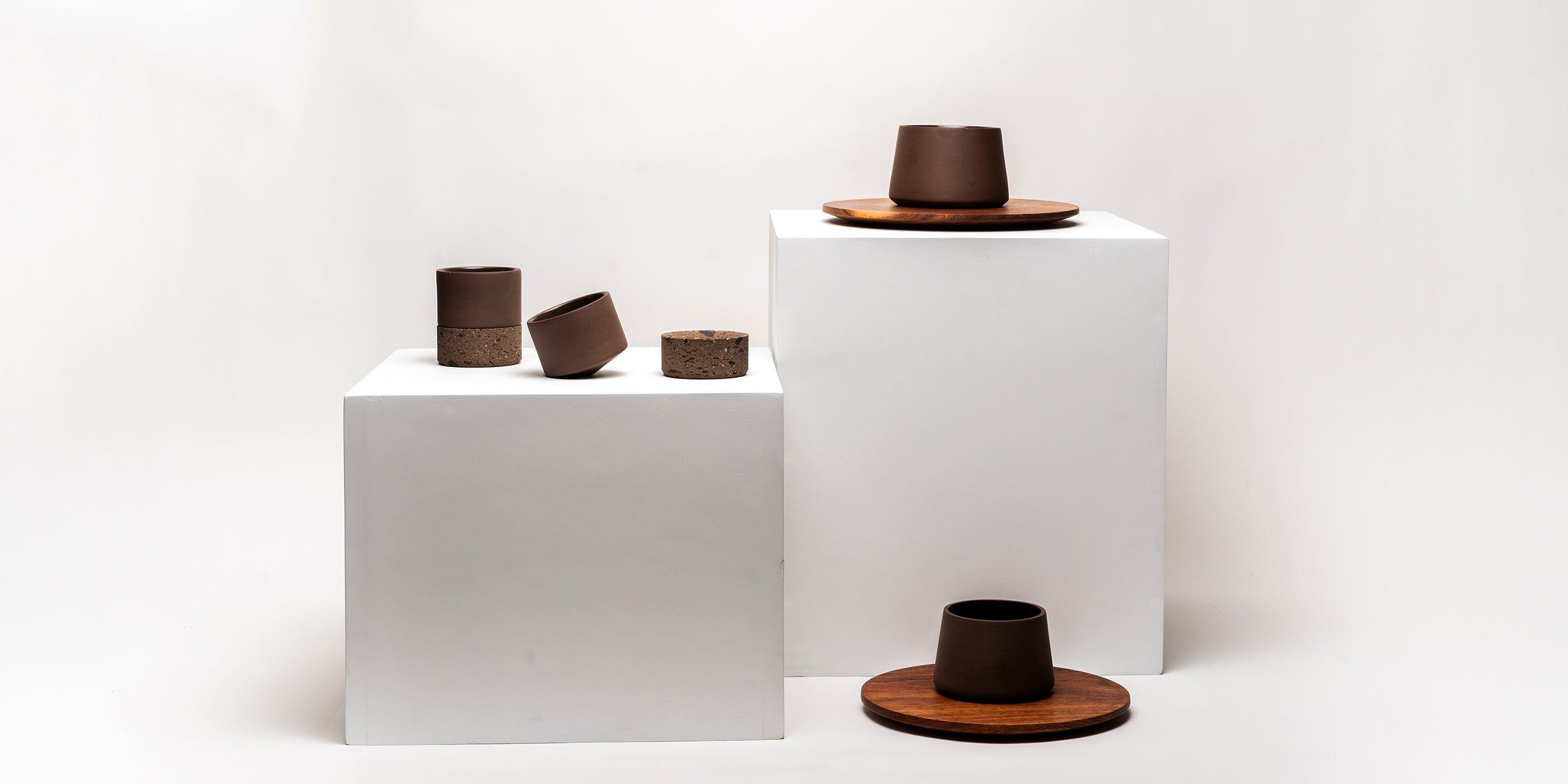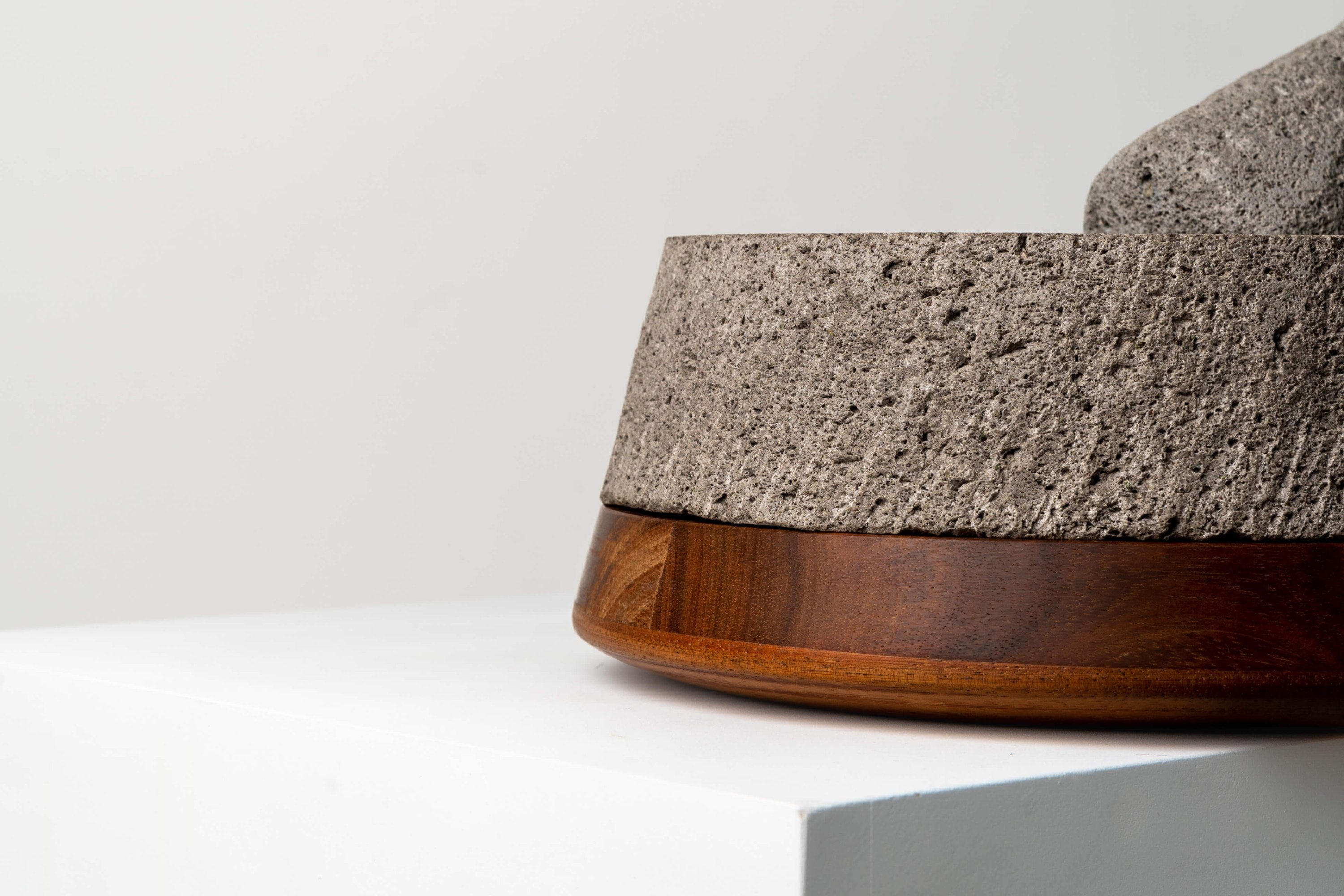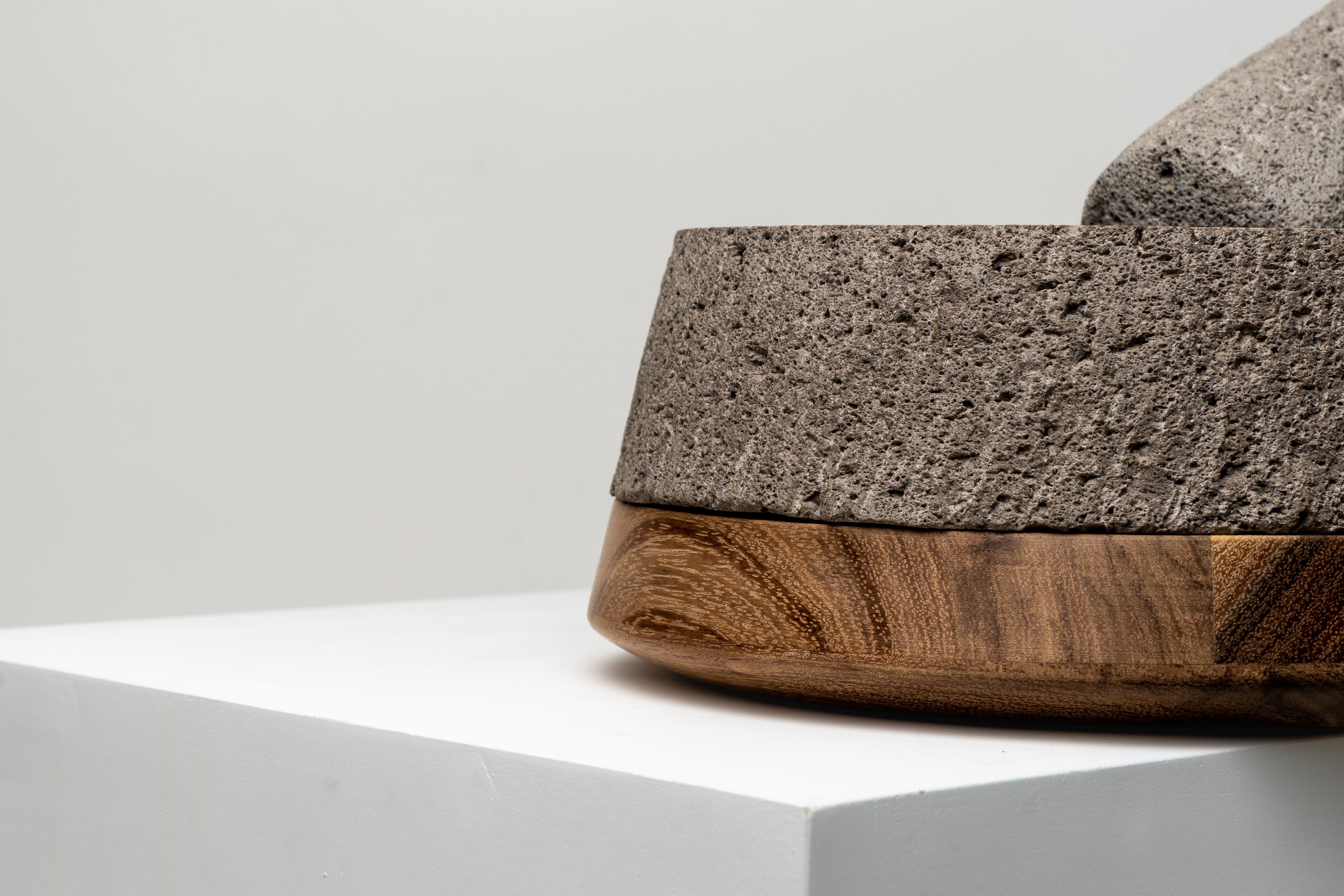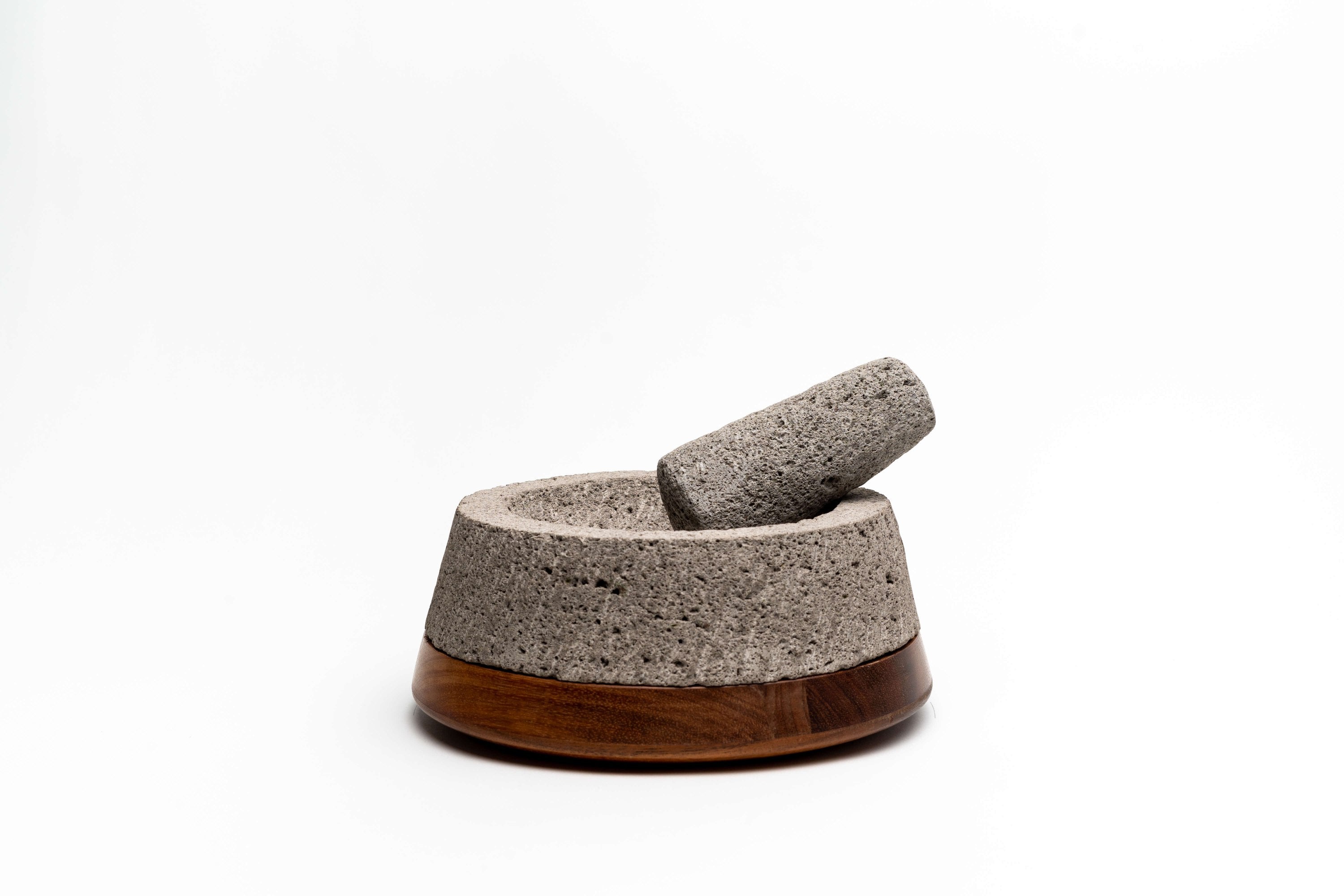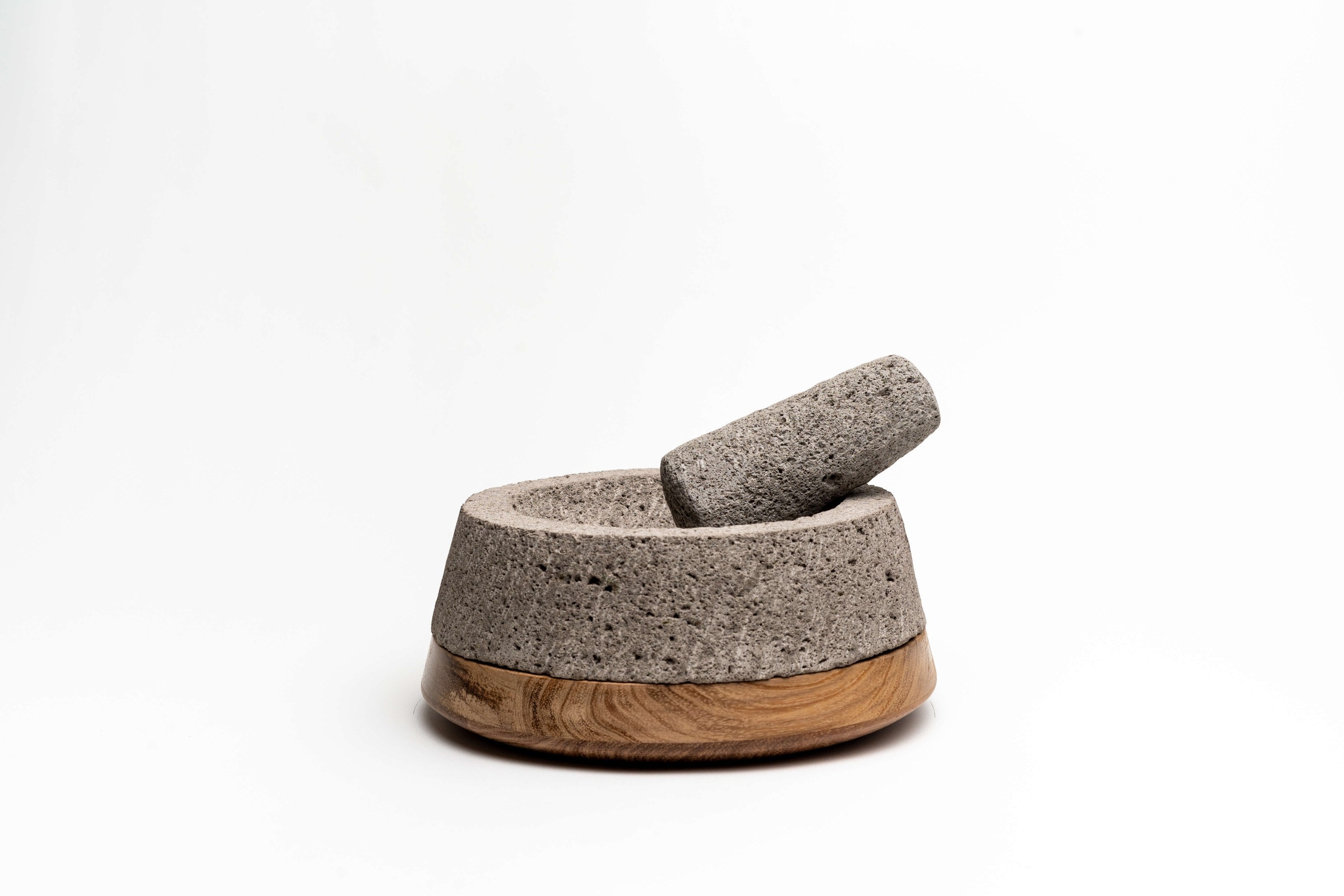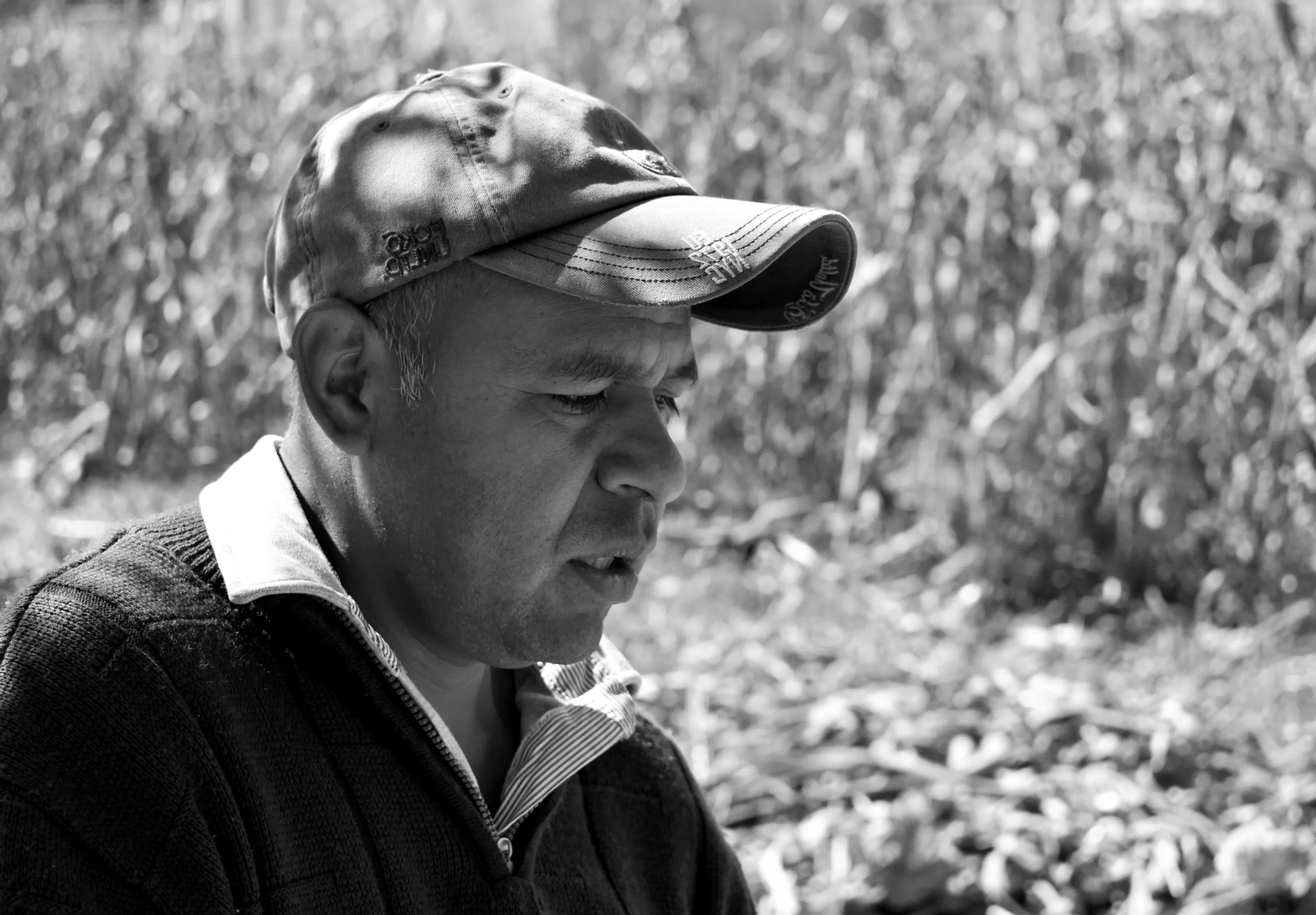
HÉCTOR IBARRA
Among more than 10 objects that we designed at begining, a molcajete with a tortillas plate was the first object that we decided to execute in MERAKIA.
For this, we look for towns that make molcajetes traditionally; places where at least something of the ancestral way of making them was preserved. Among several options -and perhaps because of its proximity to Mexico City- we chose to go to San Andrés Cuexcontitlán in Mexico State.
Arriving in San Andrés and not seeing a place on every corner where they sold molcajetes was something that surprised us, but after asking few persons we arrived with Don Hilario Ibarra, who introduced us to his son Héctor.
Héctor is one of the few that makes things different from the traditional molcajete in San Andrés, and thus, one of the few that still makes molcajetes.
Started at 7 years old
Hector started out helping his father by just making some 'tejolotes'.
He affirms that his father was always his example to follow. He teach him each technique and he was the one who gave him the basis to learn what he masters today.
When it started, Hector worked barefoot. He tells us that they usually only had one pair of shoes; wearing them out was not an option. Therefore, they preferred to work without them. However, today there are days when he gets up and prefers to work without shoes when making molcajetes. He confesses that in the end it is more comfortable to work the stone feeling it directly with his feet.
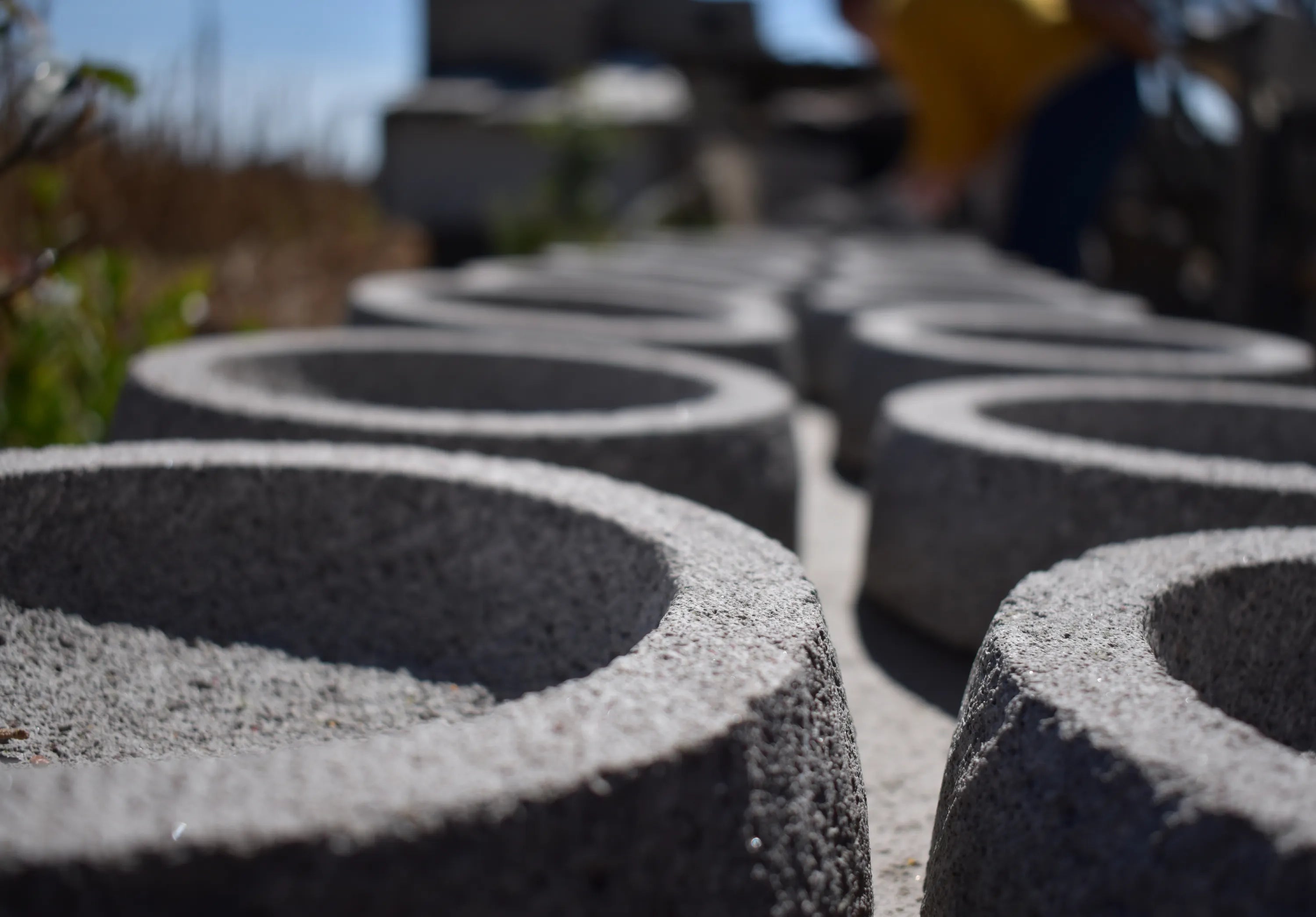
Su trabajo ha sido reconocido en el estado y fuera de él
Ha ganado varios reconocimientos en concursos locales y afirma que una de sus más grandes satisfacciones ha sido que lo hayan llevado hasta Cancún, a la isla de Cozumel para realizar trabajos especiales.
Pero a pesar de ser reconocido por la calidad de su trabajo, él está convencido de que tiene que seguir aprendiendo del oficio. Todo premio es un impulso para comprometerse más con lo que hace y él piensa que conservar esa actitud es muy importante.
Cuando talla una piedra, Héctor entiende muy bien las formas y la tercera dimensión; hace algunos trazos básicos para inspirarse; sin embargo, uno de sus más grandes sueños es poder tomar algún curso sobre técnicas de dibujo y lograr dominar el lápiz antes que el cincel. Héctor piensa que el saber dibujar le ayudará a comprender mejor las formas en la piedra.
"Cuando trabajo descalzo, creo que trabajo mejor. Siento que trabajar con zapatos es como cuando le piden a un carpintero que use guantes. La piedra no se agarra igual".
— Héctor Ibarra
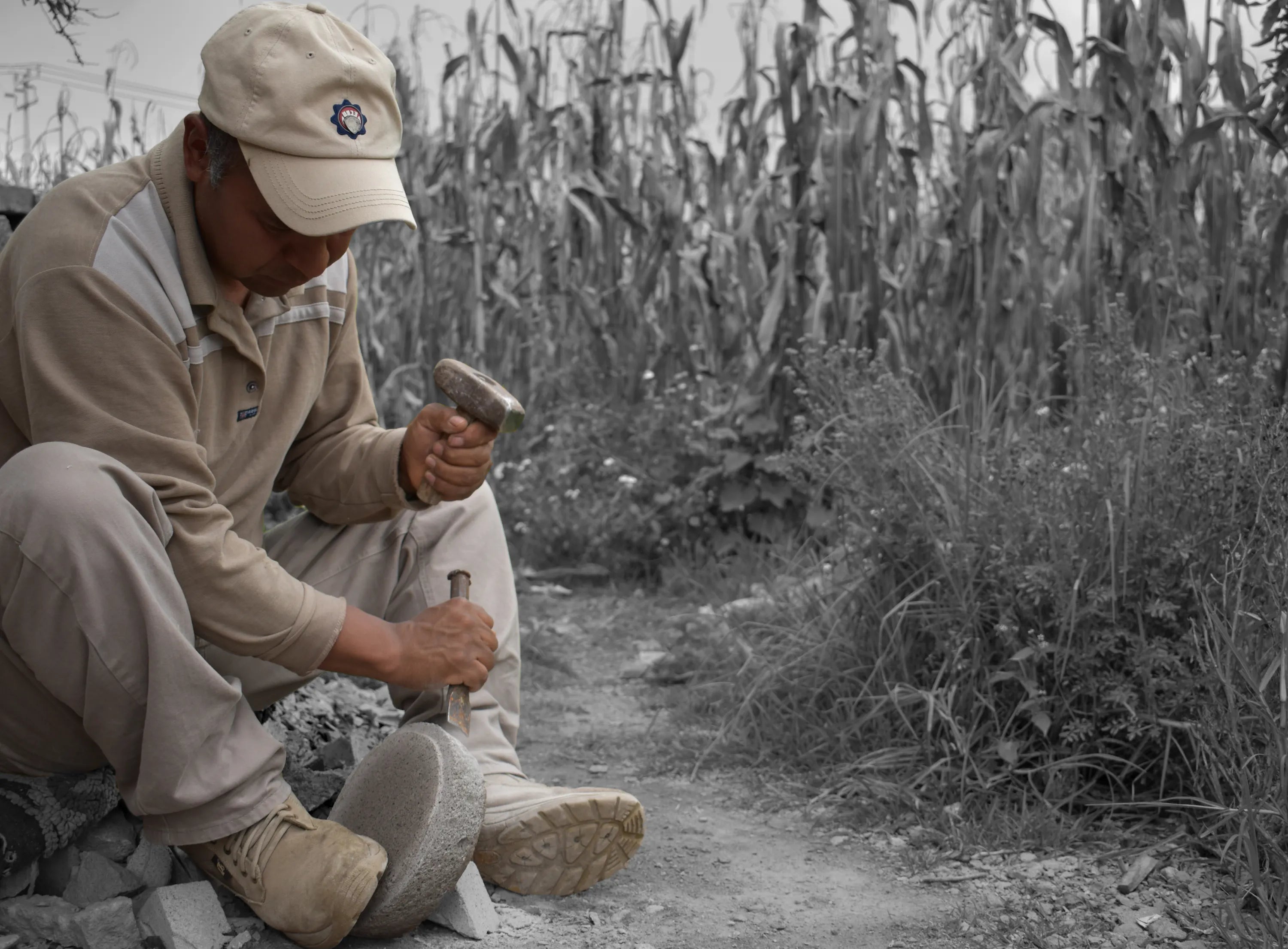
Héctor feels a certain sadness when he learns that the job of molcajete master was greatly affected in San Andrés when the Chinese resin molcajetes arrived. Before in every corner of the town the 'chisel blows' were heard. He knows that his son does not want to dedicate himself to carving stone, but his advice is always that he at least learn the job to have an alternative option to the career he wants to study.
"Este trabajo es lo que soy, es parte de mí y de mi familia... y al final cada pieza siempre se queda con algo de tí".
— Héctor Ibarra
COLABORACIONES
Productos en los que colabora Héctor


